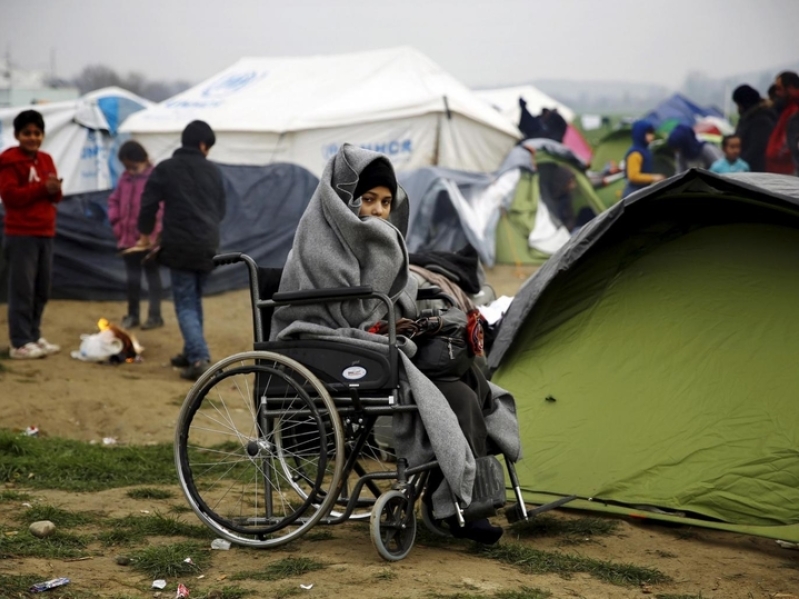
A staggering 60 percent of Syrian refugees born in Turkey in the past three years are physically disabled, and about 10 percent are so emotionally impaired they are unable to talk, a missionary working in the country has revealed.
The head of an indigenous ministry Turkey recently told Christian Aid Mission the story of Ali, a 3-year-old boy from Syria who cannot walk or talk. Doctors do not know the source of his disability. However, they believe it could stem from the fact that Ali, like thousands of children, was born in a refugee tent to malnourished parents with little access to medical care.
Still living in a makeshift tent camp in southern Turkey, Ali now relies on his 12-year-old sister and stepfather to take care of him. His father was killed in Syria's civil war, and after Ali's mother remarried, she "lost her mind and disappeared," the ministry director revealed.
"She lost her mind because of her husband being killed," he said. "So she left the children, and nobody knows where she is."
Since Syria's civil war began six years ago, Turkey has registered three million Syrian refugees, and continues to host more refugees globally than any country in the world, according to Human Rights Watch. Since then, 200,000 Syrian babies have been born in refugee camps in the country, the United Nations estimated. The ministry director told CAM that 60 percent of Syrian refugees born in Turkey in the past three years are physically disabled, and about 10 percent are emotionally impaired - some to the extent that they cannot talk.
Living in cramped quarters, refugee children have little or no chance to get medical care. Recently, the Turkish government began requiring refugees to list an address at a home or official refugee camp in order to renew their residency cards, without which they cannot obtain medical care.
"About 10 to 15 percent of the refugees don't have medical care - they don't live in an apartment or an official camp," said the ministry director.
Ali's relatives once managed to bring him to a doctor, but no one understood what was said or had the resources to pay for an MRI or a blood test to help determine a course of treatment.
The director said that because of communication problems, many refugees remain ill or injured because they receive the wrong treatment.
"Another problem with medical care is language. When they go to the hospital, there's nobody who speaks Arabic, or none of the refugees are speaking Turkish," he said. "So if you have a serious illness, the doctor will just write you some medicine and let you go, and maybe a week later you may die," he said. "And nobody even investigates how or why you died."
To combat this, the ministry provides much-needed medical, physical, psychological and spiritual care to refugee children and their families. Missionaries with medical training visit refugees in their tents every 10 days, diagnose illnesses, and write prescriptions. The ministry then buys antibiotics and other medicines for refugees who would otherwise not be able to obtain them.
In addition to physical disabilities, a recent study by Save the Children found that the ongoing war has left children with "massive invisible scars".
According to the report, researchers found widespread evidence of 'toxic stress' and mental health issues among children inside Syria. About half of children "say they never or rarely feel safe at school and 40 percent say they don't feel safe to play outside, even right outside their own home.... 78 percent of children feel grief and extreme sadness some or all of the time."
Additionally, 79% of Syrian children refugees have experienced a death in their family, and almost half display symptoms of post-traumatic stress disorder, according to the Migration Policy Institute.
Kevin Watkins, CEO of Save the Children, said: "What this research shows is that we are witnessing a mental health crisis among children brought about by six years of war in Syria. Children are soiling themselves when they hear a loud noise. They are terrified to play outside, afraid to go to school even though they are worried their futures will be ruined without an education."
He added, "This is a tragedy that must be stopped- we can end the toxic stress many children are suffering by stopping the bombardment of civilian areas and reaching everyone with life-saving aid and psychological support."
To support missionaries ministering to Syrian refugees, click here.






